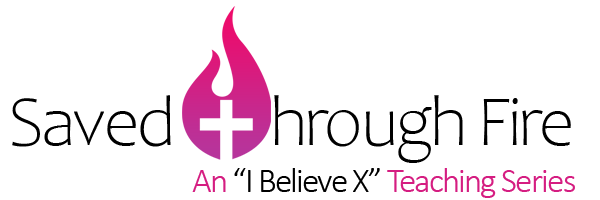
What Is Sheol in the Bible?
Is Sheol a fiery realm of punishment? Is it an early version of Hell? Does the Bible teach conscious torment immediately after death, before the final judgment?
These are critical questions , and if we let the Old Testament speak for itself, the answers are not what many have been led to believe.
Despite centuries of tradition and imported theology, the 39 books of the Old Testament never describe Sheol as a place of eternal, conscious torment. There is no fire, no demons, no punishment, and no pre-judgment suffering described in connection with Sheol , only silence, darkness, rest, and sometimes even relief.
It’s time to stop letting Greek mythology and church tradition rewrite what the Hebrew Scriptures actually say.
Sheol Is Not Hell
Let’s be blunt: Sheol is not Gehenna. Sheol is not the Lake of Fire. Sheol is not Hell.
It’s a word used 66 times in the Hebrew Bible, and here’s what you’ll consistently find:
- Sheol is silent (“In Sheol who will give you praise?” – Psalm 6:5)
- Sheol is dark (Job 10:21 calls it “a land of darkness and deep shadow”)
- Sheol is unconscious (“There is no work, nor device, nor knowledge, nor wisdom in Sheol, where you are going” – Ecclesiastes 9:10)
- Sheol is shared by all , the wicked and the righteous alike (“I shall go down to Sheol to my son mourning” – Genesis 37:35)
The Bible never places fire in Sheol. Never mentions torment there. Never divides it into zones of pleasure and punishment. That entire idea came later, imported from Second Temple Jewish apocalyptic writings and Hellenistic thought, then cemented by church tradition and mistranslation.
Sheol as a Soul-State, Not Just a Place
Here’s where it gets even more powerful , the Bible often uses Sheol not just as a destination, but as a spiritual condition. A soul-state. An internal experience of disconnection, silence, grief, or despair.
And it’s used by people who are still alive.
Let that sink in.
Psalm 18:5 – The Cords of Sheol Entangled Me
David writes, “The cords of Sheol entangled me.” But he’s not dead when he says this. He’s alive , crying out from emotional and spiritual despair. He feels like he’s sinking into Sheol, not physically, but internally. Sheol here is not a place he goes to , it’s a condition he’s going through. That’s not Hellfire. That’s not judgment. That’s a broken heart and a weary soul.
Jonah 2:2 – Out of the Belly of Sheol I Cried
Jonah says, “Out of the belly of Sheol I cried.” But where is he? He’s inside a fish. Not dead. Not in an underworld. He’s describing emotional collapse, spiritual crisis, and total isolation. Sheol is the name he gives to that experience , not because he’s been judged, but because he feels cut off and buried under circumstances.
Job 14:13 – Hide Me in Sheol
Job says, “Oh, that you would hide me in Sheol…” He’s asking God for shelter , not punishment. He’s begging for concealment , not fire. For Job, Sheol is a pause, not a penalty. A hiding place, not a hellscape. He doesn’t fear it. He hopes for it. It’s rest, not wrath.
So Why Have We Called This Place “Hell”?
Because later traditions merged ideas that were never meant to be unified.
- The parable of the rich man and Lazarus in Luke 16 is often treated like a map of the afterlife , even though it’s a parable, not a prophecy.
- Greek philosophy introduced the idea of an immortal soul living on in torment.
- Second Temple writings like 1 Enoch and 2 Esdras began developing compartmentalized afterlife zones , which Jesus and others sometimes quoted symbolically, but never canonized as literal doctrine.
The Old Testament never teaches that Sheol is a place of conscious suffering before judgment. Never. And the moment you recognize that, the whole doctrine of Eternal Conscious Torment (ECT) starts to unravel.
If Sheol Means Silence, Then Conscious Torment Is a Lie
If Sheol is:
- A place where no one praises God (Psalm 6:5),
- A place where no thoughts exist (Eccl 9:10),
- A place longed for as relief (Job 14:13),
- A place both wicked and righteous go (Gen 37:35, Ps 89:48),
Then how can we keep calling it Hell?
How can we justify the idea of people burning and screaming in conscious pain before final judgment , in a realm the Bible repeatedly calls dark, quiet, and still?
You can’t. Unless you’re okay with throwing out the entire Hebrew understanding of death.
Sheol and the Integrity of God
Let’s say it clearly: If God described Sheol as rest, stillness, and concealment, then to call it torment is to misrepresent Him.
It makes Him cruel when He was clear.
It turns His hiding place into a torture chamber.
And it invents a doctrine , ECT , that has no foundation in the 39 books of Scripture God gave to His covenant people.
Sheol is not fire.
Sheol is not Hell.
Sheol is not judgment.
Sheol is where the soul rests until God awakens it.
Final Thought
If you’re going to build your doctrine of judgment, justice, and the afterlife, start where the Bible starts , not with parables or Plato, but with Moses, David, Job, and the Prophets.
They didn’t speak of torture. They spoke of silence.
They didn’t fear Hell. They feared being cut off from God.
And they didn’t preach torment in Sheol. They cried out from it.
So if you still believe Sheol is Hell, it’s time to stop reading the Bible backward.
- 08/26/2025
- WRITE A COMMENT
Recent Posts
- The Eternal False Translation: How Aionios Was Corrupted Into Eternal
- The Rich Man and Lazarus
- Does Grace Last Forever?
- His Love Never Fails
- Love and Forgive Your Enemies
- His Mercy Endures Forever
- Scriptures That Teach Universal Reconciliation
- The Lesson of James, Peter and John
- Progressive Salvation is Biblical!
- The Gates Never Shut!


